
Fire Extinguisher Placement Guidelines For Your Home
Today's mission is to use these fire extinguisher placement guidelines I've listed below to make sure you have this vital equipment in the right places in your home if you need it.

This week we're focused on emergency preparedness in the 52 Week Organized Home Challenge. So as part of the preparation process we all need to prepare for house fires, which unfortunately are a very common emergency.
Obviously, putting out the fire quickly, when possible, before it escalates is important for both safety and preserving property, and to do that you'll need to use a fire extinguisher.
You need quick access to this equipment because when there is a fire time is of the essence.
Once something is in fire it's not the time to dash across the whole house trying to find the extinguisher, just to find out it is buried behind a bunch of clutter.
Guidelines To Consider When Placing Fire Extinguishers
A Kitchen Fire Extinguisher Is A Must
You must have a fire extinguisher in your kitchen since it is the most likely room in your home for a fire to start.
Typically kitchen fires are grease fires, and they cannot be put out with water. In fact, trying to put them out with water is very dangerous. (I've written a whole article on how to put grease fires out here, which you should review if you don't know about this common fire type.)
While the most likely place you'll need to use a fire extinguisher in the kitchen is the stove/oven area, it is actually not good to store your fire extinguisher too close to the stove.
The reason is that if something catches fire on or near the stove it may force you to have to reach through the flames to grab the extinguisher -- not good.
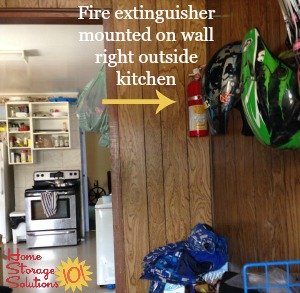
So instead, store your kitchen fire extinguisher somewhere a bit further away from the stove, but still within easy reach.
Many fire experts suggest that your extinguisher be mounted by the door of the kitchen.
The picture to the left is from a reader, Danielle. She's mounted her extinguisher on the wall next to her kitchen. She explained, "We live in the country, so we also have a large one in the garage, and another smaller one hanging around the shop."
It might be better to have been inside the kitchen so everyone could see it from the room, but then again, this placement makes it accessible easily for the rest of that floor as well. So it still works.
Other Places You Should Keep An Extinguisher
You should also keep an extinguisher on each floor of your home, just so one is close by without having to run up or down stairs.
This would include one in a basement if you have it, as well as upstairs if you have one of those.
In addition, many fire experts suggest keeping a fire extinguisher in the garage. That's because this is another prime location fires occur in homes, since this tends to be where people often store things like excess paint, other chemicals, and building materials.
Placement Of Equipment In Each Location
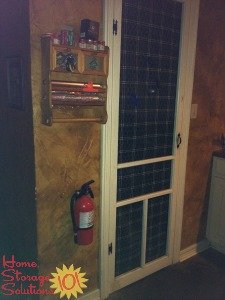
When placing your fire extinguishers throughout your home keeping them mounted on the wall in plain sight can be a great idea.
In fact, this is exactly where many fire experts suggest you place them.
Obviously this is not "lovely," but you've got to weigh in your mind the importance of safety versus a perfectly decorated home.
When you have this equipment out in the open, not hidden behind cabinets or doors, or behind a curtain, everyone in the home, guests and family members alike, can easily find the extinguisher in an emergency.
We've already discussed how when there is a fire every second counts in getting it put out, so this can be important.
Further, when extinguishers are out in the open it is harder for them to get pushed back or buried behind clutter, as can happen over time in other locations.
The photo above, on the right, is from a reader, Teresa, who has hers mounted on the wall right beside her pantry in her kitchen. I personally don't find the placement intrusive or taking away from the decor.
If you do choose to place your extinguisher somewhere not clearly visible, you'll just need to make sure you are more vigilant to make sure everyone in your home knows where the extinguishers are located, and can easily grab them without moving other things to the side in an emergency.
Further, if you do mount them on the wall, do not put them higher than 5 feet from the floor, otherwise you may place them out of reach for some people which defeats the purpose.
Don't Forget Placement In Your Emergency Supplies
Finally, don't forget that you also need to have a fire extinguisher in your car emergency kit and your 72 hour kit of emergency supplies.
What Type Of Extinguishers Should You Get?
There are several types of fire extinguishers, but for home use it is best to get one that can extinguish the main types of fires you might encounter in your home.
Therefore, you should have one that is a combination ABC fire extinguisher, meaning they can be used to treat A (wood and paper), B (grease and oil) and C (electrical) fires.
Here are some available extinguishers, all of which are the ABC variety, plus an example of a mounting bracket:
Home Fire Extinguishers {Referral Links}
How To Use A Fire Extinguisher
A fire extinguisher is only useful if it gets used when it is needed.
It can look intimidating to use this piece of equipment, but really it is relatively simple, fortunately.
Make sure everyone that is a responsible age in your home (even kids) knows where the fire extinguisher is located, and knows how to use it. I've written an article on how to use a fire extinguisher that you can reference for more explanation, plus an explanation of the acronym of PASS which helps you remember all of the steps necessary in the process.
Want To Do More Decluttering Missions? Get Started With Declutter 365 Today!
Once you declutter one type of item in your home I bet you'll want to declutter some more. After all, decluttering gives you a great reward for even a small investment of time and energy.
The Declutter 365 system is designed to help you declutter, over the course of a year, your entire house, with just 15 minutes of decluttering each day!
Hundreds of thousands of people use this proven system to get rid of their clutter, and bring peace and calm back to their homes.
Declutter 365 works to guide you to clear the clutter without overwhelm, focusing on just one small area at a time, and without making a huge mess in the process, so you see consistent forward progress without all that "messy middle" that makes it even harder to function in your home than before you started.
In addition to building a daily decluttering habit, the Declutter 365 program, along with the accompanying 52 Week Organized Home Challenge, teaches you the skills, habits, routines, and mindsets necessary to maintain the clutter free and organized state of your home from now on, so it'll never be as messy and cluttered as it is right now, ever again.
If you haven't already, make sure to get your copy of this year's Declutter 365 annual calendar here (it's FREE!), find today's date, and do 15 minutes of decluttering on the day's mission. Then, repeat again tomorrow, and again and again. Over the course of the next year, if you do this 15 minutes per day, you'll declutter your whole house!

Get This Miscellaneous Decluttering Checklist + 32 Other Decluttering Checklists For Your Home
Right now you're decluttering your home, and there's a lot of items to declutter.
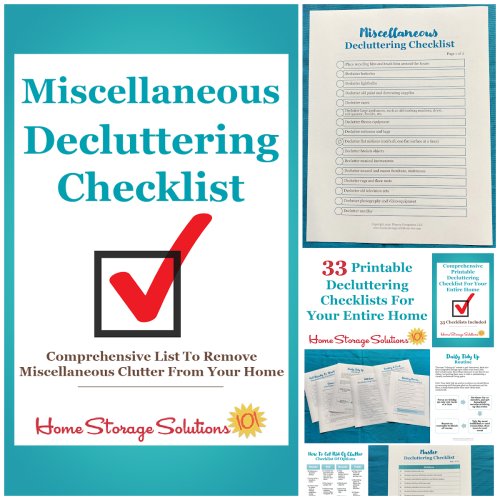
I've done the hard work of breaking down these tasks into smaller more manageable steps for you, so you don't get overwhelmed or worry you're forgetting a task, and you can go at the pace you want, whether that's fast or slow.
In addition, you can tackle these decluttering tasks in whatever order you want when you use these checklists!

Are you looking for more storage solution ideas for your home? If so check out my {A-Z} Storage Solutions & Ideas Gallery for lots more ideas.
Top photo courtesy of KatherineBenfante and bottom photo courtesy of richard winchell
Some links on this page are affiliate links, meaning that if you purchase a product through them I receive a small commission which helps me provide this information to you for free, plus support my family. My integrity and your satisfaction are very important to me so I only recommend products I would purchase myself, and that I believe would benefit you. To learn more please see my disclosure statement.
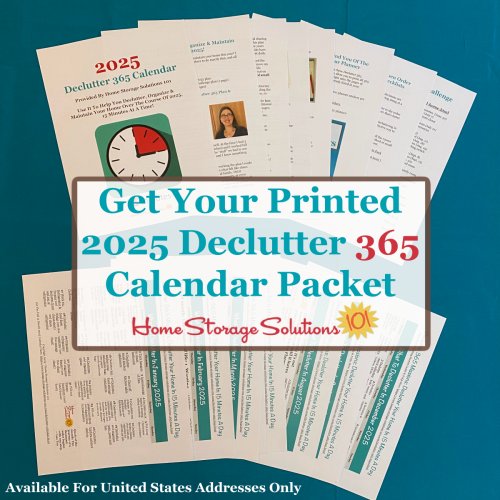
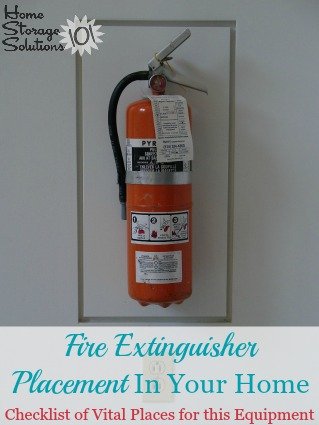

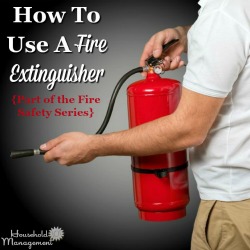
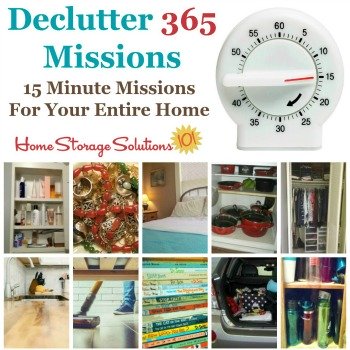



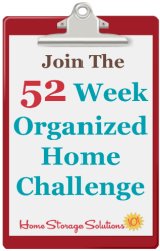



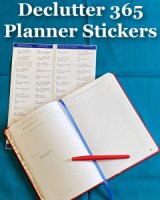

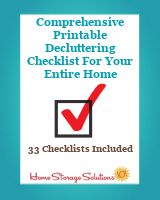


Share Your Comments, Tips & Ideas
I would love to hear from you, sharing your thoughts, questions, or ideas about this topic, so leave me a comment below. I try to always respond back!